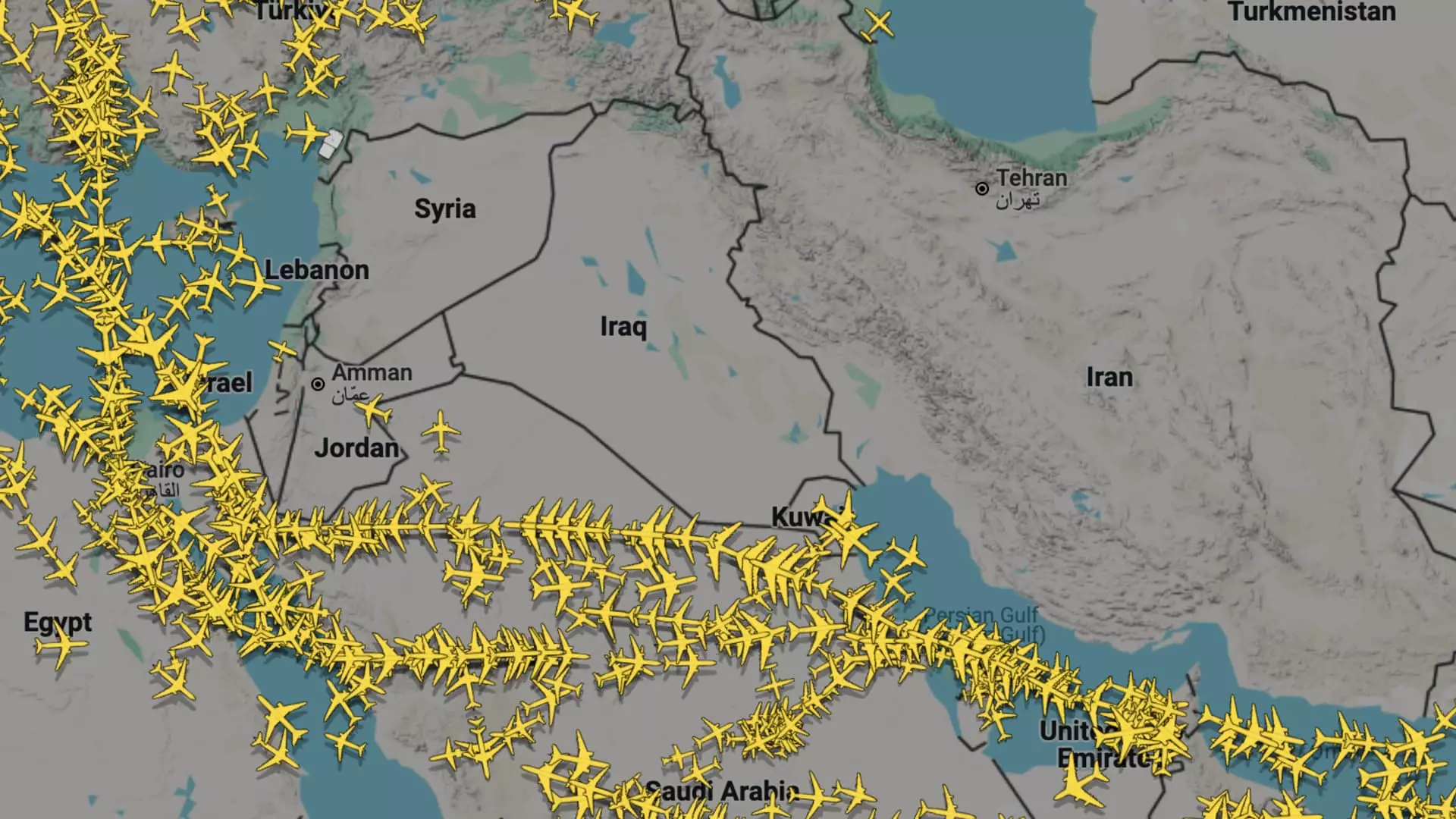In an alarming spectacle of global aviation paralysis, multiple airlines have made an unprecedented decision to avoid Israeli airspace entirely. The root of this drastic measure traces back to Israel’s missile strike on Iran, igniting a chain reaction that has the aviation community prioritizing safety above all else. Not merely an operational inconvenience, this represents a significant shift in how geopolitical instability influences commercial air travel.
Immediate Cancellations and Flight Diversions
Notably, major airlines such as Delta Air Lines and United Airlines wasted no time in responding, immediately canceling all flights to Tel Aviv and rerouting those en route from the Atlantic. The underlying message is evident: when geopolitical tensions swell, even the most routine of travel tasks become perilous. For airlines that have historically catered to the robust demand for travel to and from Israel, these cancellations could signal the beginning of a troubling trend. Customers are left stranded and scrambling, with no clear timeline for when service might resume, forcing airlines to grapple with an avalanche of change requests and refund inquiries.
El Al’s Indefinite Suspension: A Sign of Dire Times
Adding fuel to the fire, Israeli carrier El Al announced an indefinite suspension of service, following governmental directives to close Israeli airspace in light of security concerns. Their communications were strikingly stark—advising customers overseas to secure accommodations as a preemptive measure illustrates the gravity of the situation. This is not just a travel inconvenience; it is a chilling reminder that in today’s world, travel can evolve from planning an enjoyable vacation to grappling with life-altering uncertainties in a matter of moments.
Broader Implications for Global Travel
The ramifications extend beyond airlines simply suspending flights. For entrepreneurs, frequent business travelers, and families with ties to the region, these developments could lead to financial repercussions that are not easily quantifiable. Loyalty programs built on strong relationships with airlines are put to the test, and the fragility of international relations becomes painfully evident. Furthermore, the strain this places on the tourism sector could also reverberate through the economic frameworks that support so many livelihoods.
Illuminating the Larger Conflict
As Ukraine faces its own array of challenges, this situation invites further scrutiny into how nations prioritize air sovereignty over commercial interests. Airlines now must navigate complex conflict zones while grappling with the considerable costs associated with rerouting flights, taking them on longer paths that affect their bottom lines. The aviation industry has never been a stranger to challenges, but the frequency and severity with which these conflicts arise raise serious questions about future operational strategies.
The immediate aftermath of the Israel-Iran tensions is a clear indication that we are at a pivotal juncture. Passengers checking their itineraries must brace themselves for the possibility that the era of comfortable, unimpeded travel may well be drawing to a close, at least in certain regions of the world. As nations grapple with volatile dynamics, the aviation sector’s adaptability will be tested like never before.

